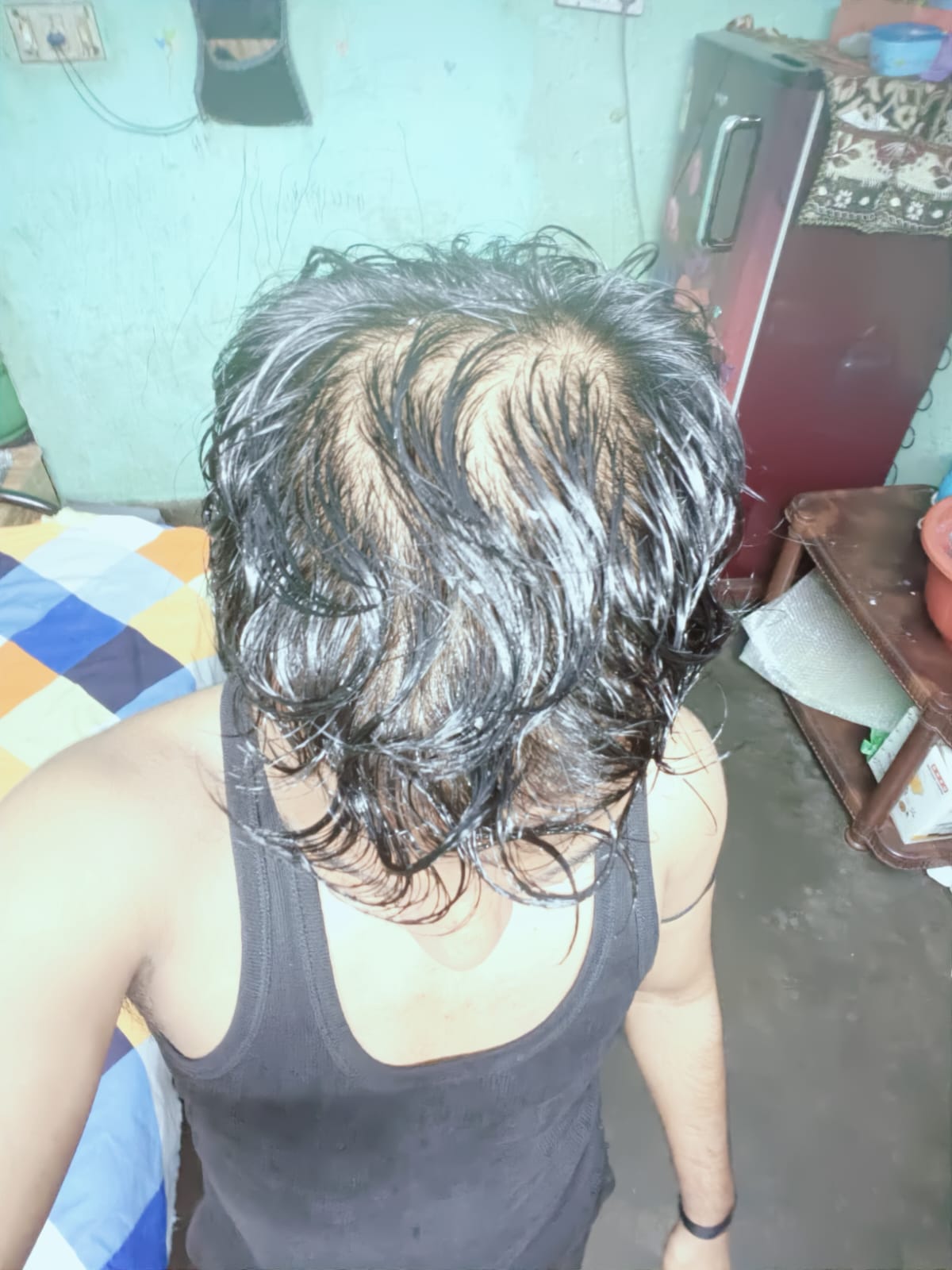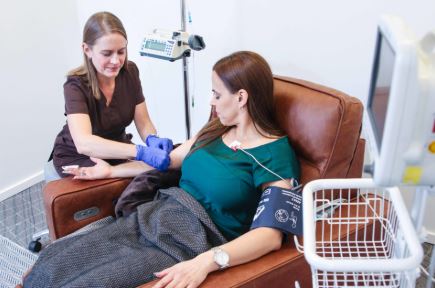Understanding Anxiety Therapy: Your Path to Relief and Recovery

Strong 8k brings an ultra-HD IPTV experience to your living room and your pocket.
Anxiety is a common but serious mental health condition that affects millions of people worldwide. For those struggling with overwhelming worry, fear, or panic, anxiety therapy can offer a lifeline to better mental health and well-being. In this article, we will explore what anxiety therapy entails, its benefits, and how it can help you regain control over your life.
What is Anxiety Therapy?
Anxiety therapy refers to a range of therapeutic treatments designed to help individuals manage and reduce anxiety symptoms. It’s tailored to address the specific type of anxiety disorder you may be dealing with—whether it's generalized anxiety disorder (GAD), social anxiety, panic disorder, or another form of anxiety.
Therapists use various evidence-based methods to treat anxiety, helping individuals understand the root cause of their anxiety and providing strategies for coping with it. Common types of anxiety therapy include Cognitive Behavioral Therapy (CBT), Exposure Therapy, Dialectical Behavioral Therapy (DBT),and Acceptance and Commitment Therapy (ACT).
Each of these therapies focuses on teaching individuals how to identify negative thought patterns, challenge irrational fears, and adopt healthier coping mechanisms.
Cognitive Behavioral Therapy for Anxiety
One of the most widely recommended and researched forms of anxiety therapy is Cognitive Behavioral Therapy (CBT). CBT helps individuals understand the connection between their thoughts, feelings, and behaviors. It works by identifying distorted or unhelpful thought patterns that contribute to anxiety and replacing them with more balanced, realistic ones.
During CBT sessions, a therapist will often work with you to challenge irrational fears and practice skills that help you manage anxiety triggers. The goal is to reduce the intensity of anxiety symptoms over time and build long-term resilience against anxiety-provoking situations.
Exposure Therapy: Facing Your Fears
Exposure Therapy is another effective method for treating anxiety, particularly for conditions like phobias and panic disorders. This form of therapy involves gradual exposure to the source of your anxiety in a controlled and safe environment.
Exposure therapy aims to reduce the fear and avoidance behaviors associated with anxiety. For example, if you have a fear of flying, your therapist may guide you through imagining, discussing, and eventually experiencing situations related to flying, helping you build confidence and reduce panic responses.
Dialectical Behavioral Therapy and Acceptance
For individuals dealing with severe or chronic anxiety, Dialectical Behavioral Therapy (DBT) and Acceptance and Commitment Therapy (ACT) may be beneficial. DBT focuses on mindfulness, emotion regulation, and distress tolerance, teaching clients how to live in the moment and manage intense emotional reactions.
On the other hand, ACT encourages individuals to accept their thoughts and feelings without judgment, helping them commit to actions that align with their values despite the presence of anxiety. These therapies can provide crucial tools for managing anxiety that persists despite traditional treatments.
Benefits of Anxiety Therapy
Engaging in anxiety therapy offers numerous benefits, both immediate and long-term. Some key advantages include:
1. Understanding Your Anxiety
Therapy helps you gain insight into what triggers your anxiety, how it manifests, and why it persists. By identifying the root causes of your anxiety, you can begin to address the underlying issues and find relief.
2. Developing Healthy Coping Mechanisms
Through therapy, you'll learn practical tools and coping strategies that help manage and alleviate anxiety symptoms. Whether it's practicing deep breathing, challenging negative thoughts, or facing your fears, these skills are essential for long-term management.
3. Building Emotional Resilience
Therapy equips you with emotional resilience, allowing you to handle future anxiety-inducing situations with more confidence. Over time, you may find that anxiety has less power over you, enabling you to live a fuller and more engaged life.
4. Improving Relationships
Anxiety often affects not just the individual but also their relationships. Therapy can help you communicate your feelings more effectively, understand how your anxiety impacts others, and build stronger, healthier relationships with loved ones.
5. Achieving Better Mental Health
The ultimate goal of anxiety therapy is to improve your overall mental health and well-being. With the right therapeutic support, many individuals find themselves less burdened by anxiety and more capable of leading fulfilling, balanced lives.
How to Know if You Need Anxiety Therapy
It’s normal to feel anxious occasionally, especially in stressful situations. However, if anxiety starts interfering with your daily life—impacting your work, relationships, or overall happiness—it may be time to consider anxiety therapy.
Some signs that therapy could be beneficial include:
- Persistent worry or fear that is difficult to control
- Avoidance of situations due to fear or panic
- Physical symptoms like headaches, rapid heartbeat, or shortness of breath when anxious
- Difficulty sleeping or concentrating
- Constant feeling of being "on edge"
If any of these symptoms resonate with you, seeking help from a licensed therapist can be the first step toward managing and overcoming your anxiety.
Finding the Right Anxiety Therapist
Choosing the right therapist is a crucial part of your recovery journey. Look for therapists who specialize in anxiety disorders and use evidence-based practices like CBT. You may also want to consider factors such as:
- Experience: Ensure the therapist has a strong track record in treating anxiety.
- Compatibility: Therapy is a personal experience, so it’s important to find someone you feel comfortable with and can trust.
- Location and Accessibility: Whether you prefer in-person sessions or online therapy, choose an option that fits your lifestyle and needs.
- Credentials: Verify that the therapist is licensed and certified to practice in your state or country.
Online therapy platforms have made it easier than ever to connect with a therapist specializing in anxiety. Many offer flexible scheduling, affordable pricing, and a wide range of therapists to choose from, making it convenient to get the help you need.
Self-Help Strategies to Complement Anxiety Therapy
While therapy is highly effective, there are also self-help techniques that can complement your treatment and help you manage anxiety on a day-to-day basis. Some strategies to consider include:
1. Mindfulness and Meditation
Mindfulness practices, such as meditation, can help you stay grounded in the present moment, reducing the tendency to worry about the future. Regular mindfulness practice has been shown to decrease anxiety symptoms over time.
2. Physical Exercise
Exercise is a natural stress reliever and can significantly reduce anxiety. Whether it’s a brisk walk, yoga, or strength training, staying active helps release endorphins and provides a mental break from worry.
3. Breathing Exercises
Simple breathing exercises can help calm your nervous system and reduce anxiety symptoms quickly. Techniques like diaphragmatic breathing or the 4-7-8 method can be used in moments of acute anxiety.
4. Journaling
Writing about your thoughts and feelings can help you process your emotions and identify patterns in your anxiety. It’s a therapeutic way to express what you’re going through without judgment.
5. Limiting Caffeine and Alcohol
Both caffeine and alcohol can exacerbate anxiety symptoms. Reducing or eliminating these substances from your diet may help you feel more balanced and less jittery.
Conclusion: Start Your Journey to Anxiety Relief
Anxiety therapy offers a proven path to relief and recovery for individuals struggling with anxiety disorders. With the right therapeutic support, you can learn how to manage your symptoms, build emotional resilience, and improve your overall quality of life.
If you're ready to take the first step toward overcoming anxiety, consider reaching out to a licensed therapist who specializes in anxiety therapy. You don’t have to face anxiety alone—help is available, and recovery is possible.
Note: IndiBlogHub features both user-submitted and editorial content. We do not verify third-party contributions. Read our Disclaimer and Privacy Policyfor details.







